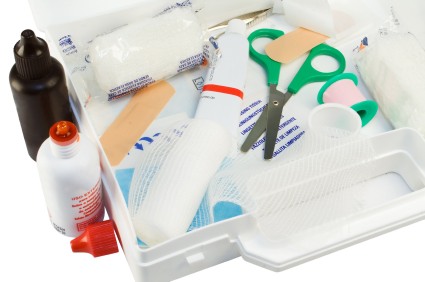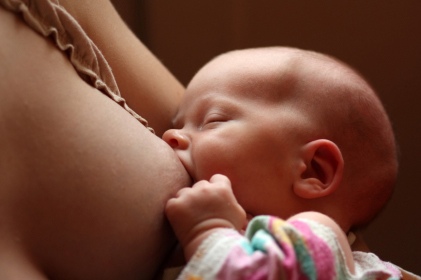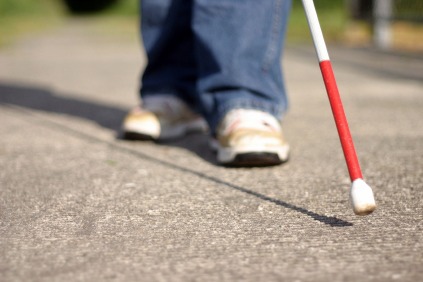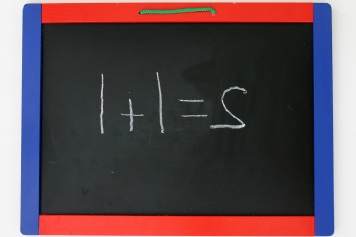A baby or toddler can drown even in water that a couple of inches deep. He does not know how to put his arms out when he falls and does not hold his breath when he feels his face covered with water. Instead, he opens his mouth to yell and fills his lungs with water.

Drowning []
If the child is coughing and sputtering, he is getting some air into his lungs and some of it is getting into his bloodstream. He will probably be all right.
Put the child either head down across your lap or lying face down on the ground with his head well turned to one side. Cover him with some warm clothing.
If he is not breathing, do not waste time trying to drain water out of his lungs. Clear any debris, like mud or seaweed from his mouth and start artificial respiration, if possible while you are carrying him from the water, and call for emergency help.
Make sure that if he brings up any water, he does not breathe it back and choke. Take him to the hospital even if by the time the ambulance arrives, he seems perfectly alright. If the water he swallowed was dirty, he might catch pneumonia. If it was freshwater or water from a swimming pool, enough may have got into his bloodstream to upset the biochemical balance of his body.
Safety tips
Teach your toddler to swim. The sooner you do it, the better. He will learn to hold his breath in water instead of breathing it in. But, remember to not let your child’s expertise in a pool lead you into a false sense of security. Your four-year-old may be comfortable in a warm swimming pool. But, that does not mean that he can swim to safety if he falls from a boat into an icy river, or stay afloat if a wave knocks him down.
If you have pools in your garden when your children are very small, they must be carefully guarded.
If you take a toddler to a paddling pool, you should paddle too.
Do not ever leave a small child alone in a bath. Babies need to be held until they can sit properly.
Do not let your toddler go close to even a rain puddle without an adult escort.
At the sea or a lakeside, stay close to the lifeguard stations. Take local advice about tides before making plans to bathe on a deserted beach. Keep inflatable water toys on a line.Wind or the tide may carry far away from the shore.










